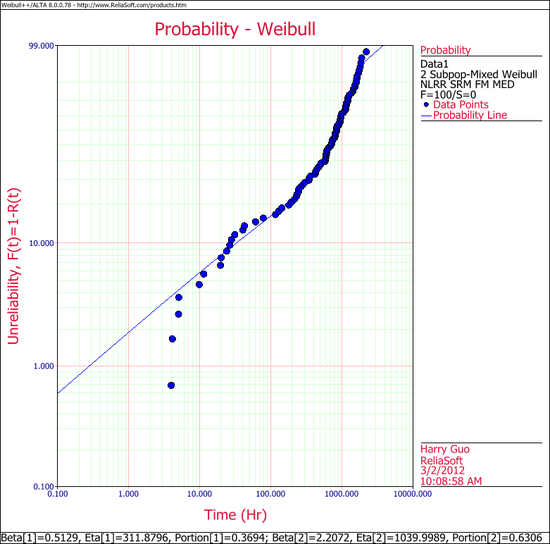Mixed Weibull Example: Difference between revisions
Lisa Hacker (talk | contribs) Created page with '<noinclude>{{Banner Weibull Examples}} ''This example appears in the Life Data Analysis Reference book''.</noinclude> We will illustrate mixed…' |
Kate Racaza (talk | contribs) corrected minor typo |
||
| Line 2: | Line 2: | ||
''This example appears in the [[The_Mixed_Weibull_Distribution|Life Data Analysis Reference book]]''.</noinclude> | ''This example appears in the [[The_Mixed_Weibull_Distribution|Life Data Analysis Reference book]]''.</noinclude> | ||
We will illustrate mixed Weibull analysis using a Monte Carlo generated set of data. To repeat this example, generate data from a 2-parameter Weibull distribution using the Weibull++ Monte Carlo utility. The following figures illustrate the required steps, inputs and results. | We will illustrate the mixed Weibull analysis using a Monte Carlo generated set of data. To repeat this example, generate data from a 2-parameter Weibull distribution using the Weibull++ Monte Carlo utility. The following figures illustrate the required steps, inputs and results. | ||
In the Monte Carlo window, enter the values and select the options shown below for subpopulation 1. | In the Monte Carlo window, enter the values and select the options shown below for subpopulation 1. | ||
Revision as of 06:06, 13 August 2012
 |
New format available! This reference is now available in a new format that offers faster page load, improved display for calculations and images and more targeted search.
As of January 2024, this Reliawiki page will not continue to be updated. Please update all links and bookmarks to the latest references at Weibull examples and Weibull reference examples.
This example appears in the Life Data Analysis Reference book.
We will illustrate the mixed Weibull analysis using a Monte Carlo generated set of data. To repeat this example, generate data from a 2-parameter Weibull distribution using the Weibull++ Monte Carlo utility. The following figures illustrate the required steps, inputs and results.
In the Monte Carlo window, enter the values and select the options shown below for subpopulation 1.
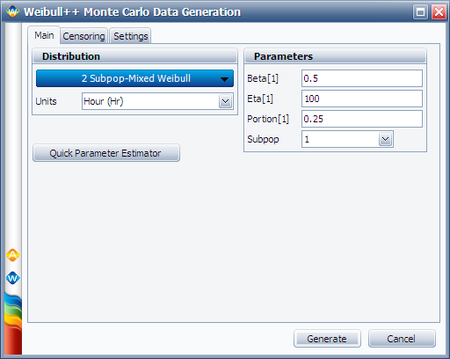
Switch to subpopulation 2 and make the selection shown below. Click Generate.
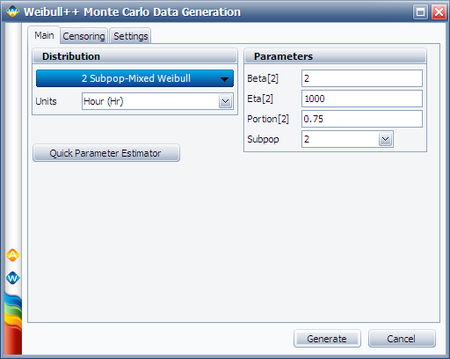
The simulation settings are:
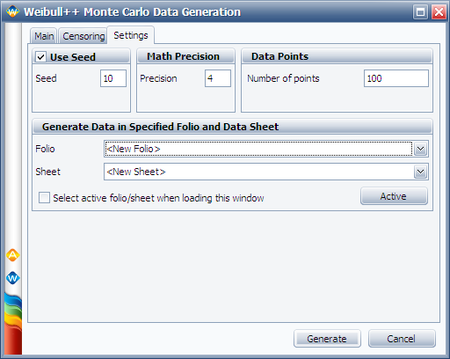
After the data set has been generated, choose the 2 Subpop-Mixed Weibull distribution. Click Calculate.
The results for subpopulation 1 are shown next. (Note that your results could be different due to the randomness of the simulation.)
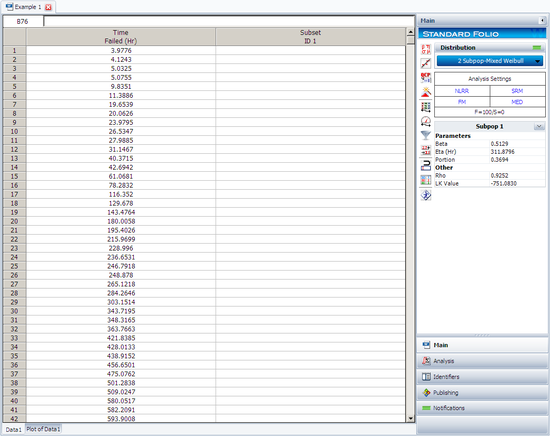
The results for subpopulation 2 are shown next. (Note that your results could be different due to the randomness of the simulation.)
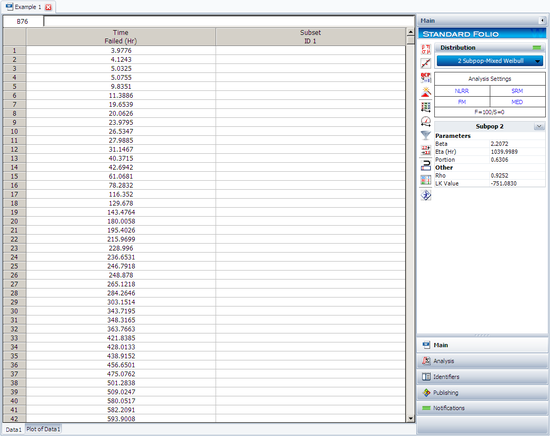
The Weibull probability plot for this data is shown next. (Note that your results could be different due to the randomness of the simulation.)
